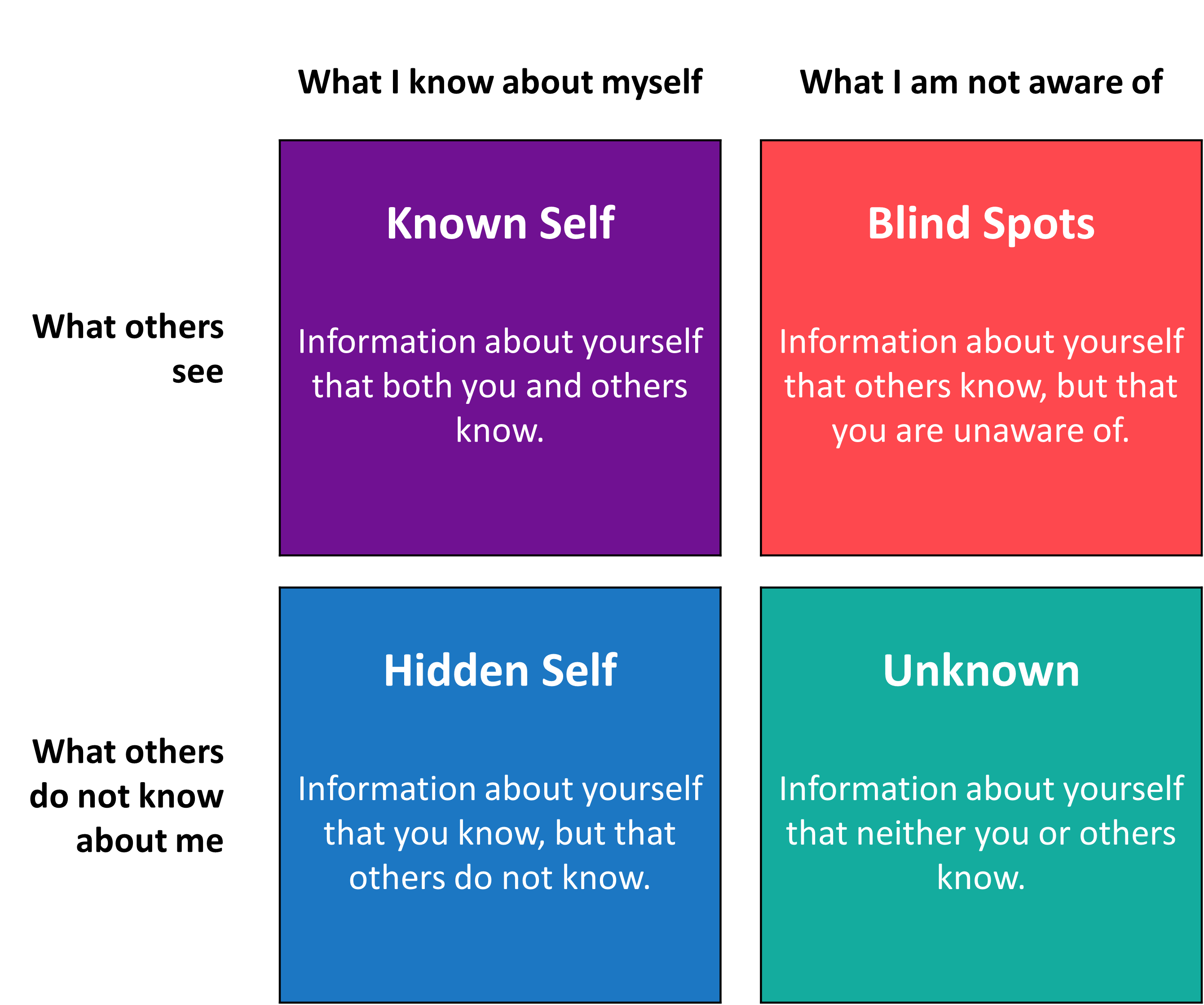Resources
JoHari's Window
The Case for Self-Awareness
The more you know who you are, the more you can be the ideal you.
The Value of Self-Awareness
- Self-awareness has been consistently ranked as the top accelerator of leadership effectiveness.
- A Cornell study of executives reported that self-awareness was the strongest predictor of overall success.
- Harvard Business Review recently wrote an article saying “When we see ourselves clearly, we are more confident and more creative. We make sounder decisions, build stronger relationships, and communicate more effectively.”
- Self-awareness is foundational to the all-important “soft skills” such as emotional intelligence, empathy, relationship building, political acumen, and high impact communication.
Additional benefits of self-awareness:
- Increased well-being, personal empowerment, emotional intelligence, enhanced confidence and creativity, better relationships, clearer thinking, increased productivity, sounder decisions, more effective communication, improved mood.
Studies led by Tasha Eurich indicate that while 95% of people think they are self-aware, only 10-15% of people actually are at a high level of self-awareness. According to Eurich, the common approach to self-reflection and introspection is incomplete. She emphasizes that we cannot achieve self-insight in isolation and by doing so we run the risk of being in an endless loop of self-inquiry.
The tool below is meant to help foster the development of self-awareness. It is built on the work of Joseph Luft and Harrington Ingham, who in 1955 developed a model of self-discovery called the “JoHari Window.” This model consists of a square divided into four quadrants as follows:

- How you view yourself
- How you communicate with others
- How you present yourself to others
- How others perceive you
- Motivations vs actions
- Intent vs impact
Steps for completing this exercise:
First, complete the Self-Assessment.- To complete the first step, select 6 words from the list of adjectives that best describe you.
Second, use the personalized link we have provided and invite feedback from participants:
- Create a list of people you want feedback from.
- Copy the link and email it to selected participants, inviting them to submit anonymous feedback. They will be asked to select 6 words from the same list of adjectives that best describe you.
- Here is some suggested language for the email you send:
“I am participating in a self-awareness exercise called JoHari Window. Please consider taking a moment to provide me with your anonymous feedback. All you need to do is select 6 words from the list of adjectives that best describe me. Thank you in advance for your time and honesty. Click on this link to submit your feedback:”
https://www.consultpsych.com/Resources/JoHaris_Window.asp
As participants contribute, the words will populate in one of the three quadrants (blind spots, hidden self, public self). The words not selected will remain as a default in the “unknown self” category.
Tips when completing the exercise:
Enter the exercise with an open mind and use the following questions to promote reflection and learning:- How easy or difficult was it to select the adjectives to describe yourself? Why?
- After comparing feedback, what were you surprised by?
- What was validating?
- What can you do to reduce your Blind Spot and/or Facade, and move those qualities into the Public Self instead?
- How can you apply what you learned about yourself?
- How can you reframe “why” questions into “what” questions to seek deeper understanding.